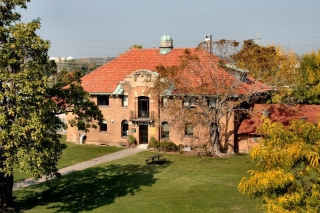The School of Human Nutrition has a comprehensive inventory of well-equipped laboratories, animal and tissue culture facilities, and computer equipment. In addition to research carried out on campus, Faculty and students conduct research projects throughout Canada and the world. Fundamental research areas include developmental nutrition; trace element metabolism; carbohydrate, protein, lipid and cholesterol metabolism; neurochemistry; nutritional toxicology; clinical nutrition; maternal and child nutrition; nutrition and behaviour; nutritional epidemiology; nutrition in developing countries; nutrition and the environment of Indigenous Peoples; nutritional status assessment. Community nutrition research focuses on diet, health and disease in high-risk populations in Canada and developing countries. Current projects are in the Montreal area, and in communities of Indigenous Peoples, as well as research projects in Latin America and Africa through McGill International. Research is conducted in our on-site research sites on the Macdonald Campus as well as McGill University Health Centre (MUHC) teaching hospitals.
 |
|
 |
The Clinical Nutrition Research Unit houses state-of-the-art equipment and facilities, including technology for comprehensive physiological assessments of body composition and sampling of biospecimens; an exercise area equipped to precisely measure metabolic parameters; cutting-edge research kitchen and dining observation room to study eating behaviours and deliver controlled feeding studies; a sensometric food lab with wearable devices to measure neural and behavioural responses to food and retail stimuli; a computing lab to analyze “big data” from biological and nutritional assessments; and a first in Canada food pharmacy to deliver personalized nutrition to patient groups for chronic disease management. |
  |
Managed by the School of Human Nutrition of McGill University, the Food and Nutrition Laboratories opened in 2010. High-performance industry-standard equipment makes it the ideal facility for advanced food service training, nutrition research, and development and evaluation of novel food products. The facility is located in the Centennial Center. The adjacent Helen Neilson Culinary Demonstration Room features both standard and professional food service equipment. With its audio-visual equipment, large screens, and mirrors for projection of the demonstration area, the facility is ideal for demonstrations, presentations, community events and film shoots.. Sensory evaluation rooms enable the creation of computer generated questionnaires and statistical evaluations of groups of panelists’ assessments of samples presented under controlled environments. Finally, a simulation room for interviewing training is also available. |
 |
Located on the Macdonald Campus is the Centre for Indigenous Peoples' Nutrition and Environment (CINE). The Centre provides study of the impact of environments on food systems and nutritional status of Indigenous Peoples in Canada and internationally. Emphasis is given to dietary patterns, food composition, nutritional toxicology, ecology and epidemiology. |
